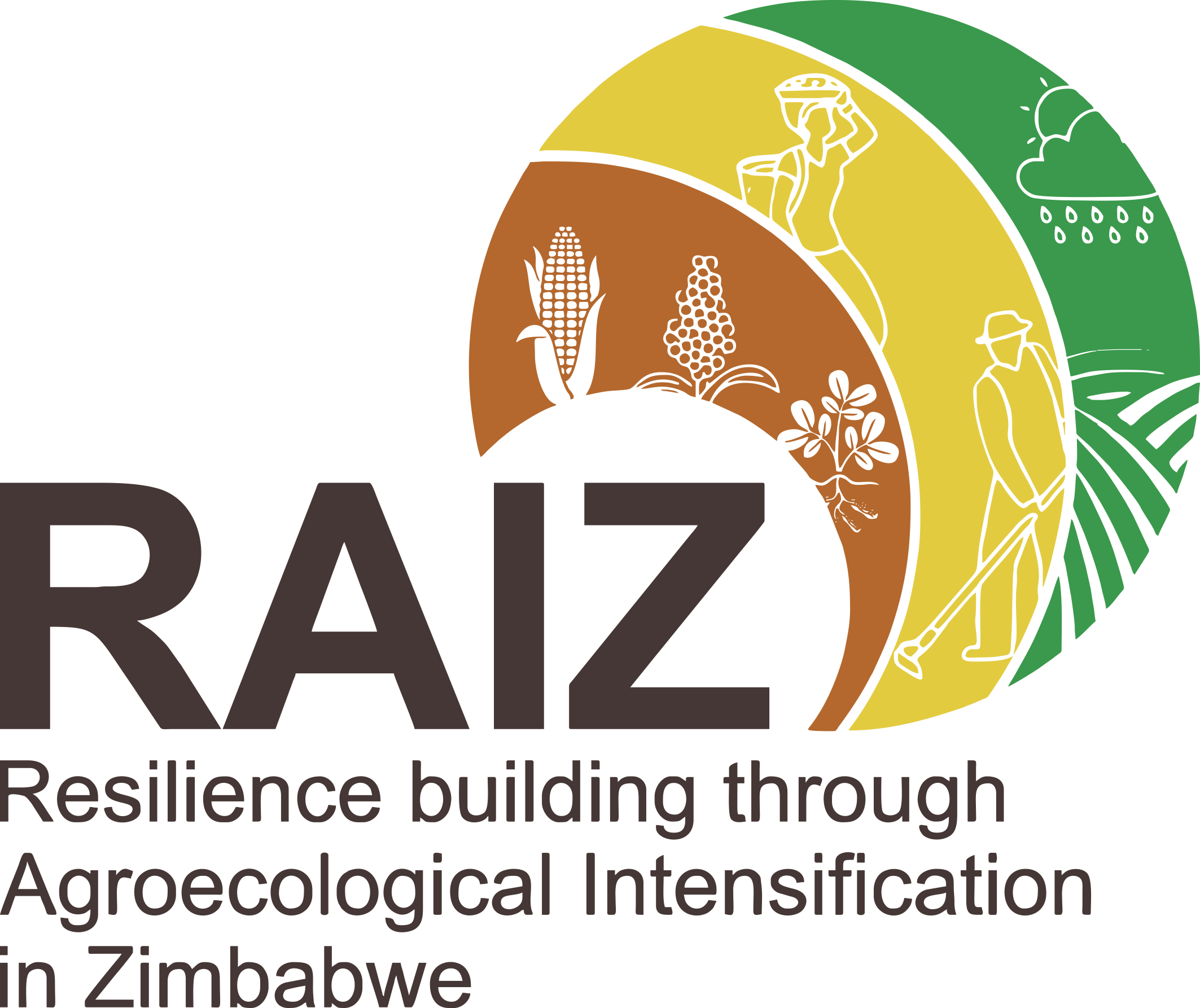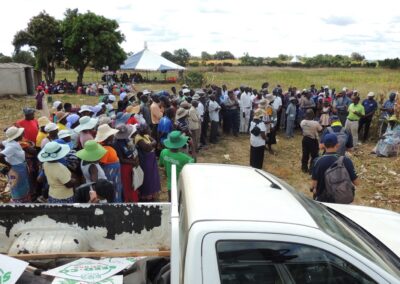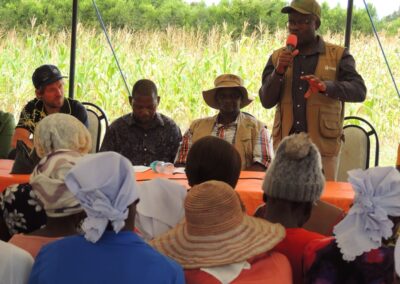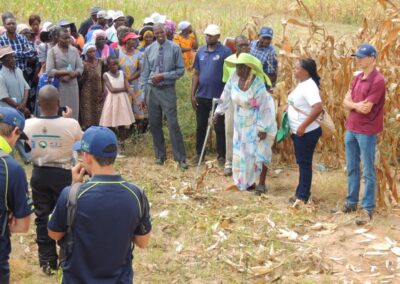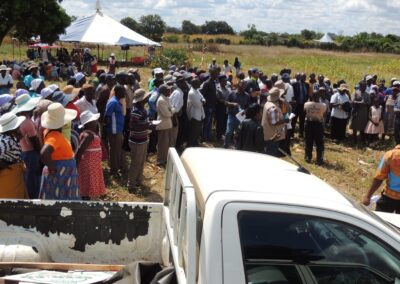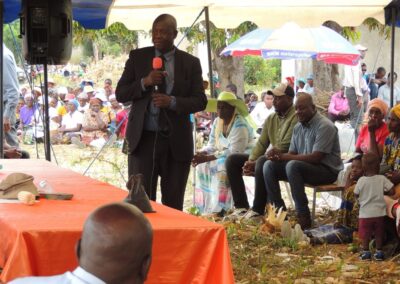Murehwa Field Day
04 April 2023
Zimbabwe’s greatest development challenges is that of producing food sustainably within planetary boundaries and this is exacerbated by climate change impacts rainfall variability and prolonged mid-season dry spells, and environmental degradation, and Murehwa district is no exception. There is therefore a need for further research that provide evidence for food production systems to inform policy at national level and positively influence agricultural growth.
The Resilience Building through Agroecological Intensification in Zimbabwe (RAIZ) Project in Zimbabwe is one such initiative and it is being implemented in two districts of Murehwa and Mutoko by CIRAD, CIMMYT and University of Zimbabwe, and Ministry of Lands, Agriculture, Fisheries, Water and Rural Development through the Agricultural Advisory and Rural Development Services (AARDS) and local farmers. The programmatic approach is producing evidence that support different agroecological approaches through experimental on-farm trials with smallholder farmers on what works and what does not?
To demonstrate these results of these experimental on-farm trials, the RAIZ project hosted a Field Day at Gogo Anna Koga homestead in Ward 27, Murehwa District with approximately 380 farmers in attendance (200 women and 180 men). The participation of women at the Field Day demonstrates that rural food production systems is centred around women and therefore their inclusion in co-production of research will go a long way in agroecological intensification. Smallholder farmers involved in the RAIZ project as well as other farmers in the community with interest in learning were in attendance. Prof Regis Chikowo (University of Zimbabwe) led a tour around the fields which demonstrated various aspects in crop production (SC555 and SC659) grown at different intervals; plots with organic manure application and fertilisers, plots with fertiliser only and other plots with no organic manure nor fertiliser. The performance of these crops was clearly different with the crop with application of both organic manure and fertiliser showing best results followed by crops with fertiliser only and lastly the least performing crops did not have fertiliser nor organic manure.
The event had overwhelming support from various Government Departments as well as the private sector including: The Office of the District Development Coordinator; AARDS at district and provincial level; Environmental Management Agency (EMA); Grain Marketing Board (GMB); Ministry of Women Affairs, Community, Small and Medium Enterprises Development; and the private sector which include SEEDCO and Farmers Choice Hardware (private sector). Local leadership was in support of the RAIZ project through the presence of Chief Mangwende, the Councillor (Mr Tafirenyika Madzira) and several village heads who steer development at the village level. The Councillor reiterated on the need for continuous support from different development partners in strengthening government mandate.
The SEEDCO Representative Mr Mutseka did put emphasis on growing crop varieties that are aligned to the agroecological region which is why they have five (5) of maize varieties to suit each context. Further he said, SEEDCO is cognisant of the changing climate and hence production of climate smart varieties.
“…good farming begins with the right seed, and to grow crops on time so that crops can reach maturity and potentially good harvest” said Mr Mutseka said.
With emphasis SC555. Mr Mufori (EMA) clearly pointed out that the planet systems will reach a limit in allowing us to produce food for the populations, with further recognition of the impacts of climate change is food production hence the need for environmental conservation practices, adaptation and mitigation practices across board. Mr Gangayi (GMB) also emphasised on surplus production by the farmers so that they supply the GMB with grain to key areas where food is in short supply. The AARDS Provincial Director Mr Munamati (Guest of Honour) clearly appreciating that the RAIZ project was undertaking research in farmers’ fields (with poor soils) and with the farmers themselves as co-producers of knowledge. He further indicated that the RAIZ project was aligned to the Ministry of Agriculture through the Pfumvudza program mandate which is, “We are going for growth” in food production.
“If research is undertaken and the smallholder farmers do not understand it – it is not research at all. We take cognisance of the poor soils and rainfall variability hence the need for different farming approaches and the need to learn through the RAIZ project. We all need to take note of 5 key words that were consistently used during field tor discussions and these were: climate change; resilience; adaptation; mitigation and diversification”, he reiterated.
The participation of several government departments across different thematic areas of development is clear indication of the “living lab” at play where different stakeholders are sharing ideas, experiences and lessons for better approaches to agroecological intensification in Murehwa District. This illustrates the interlinkages of the food production systems and other departments that are key in the agroecological space.
